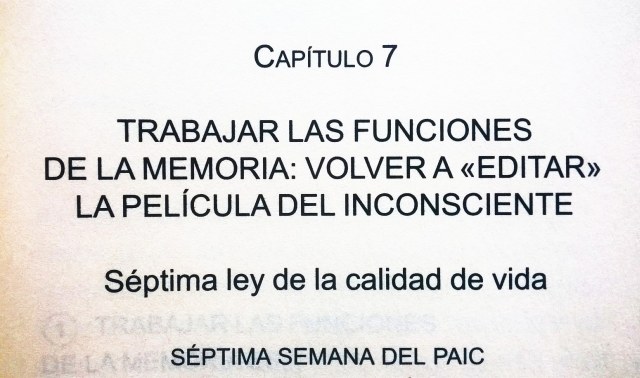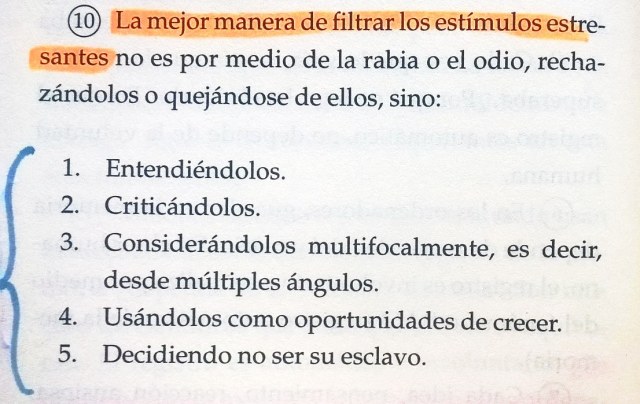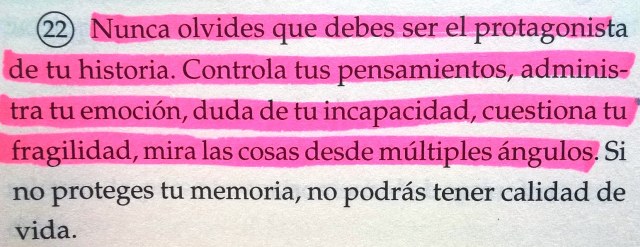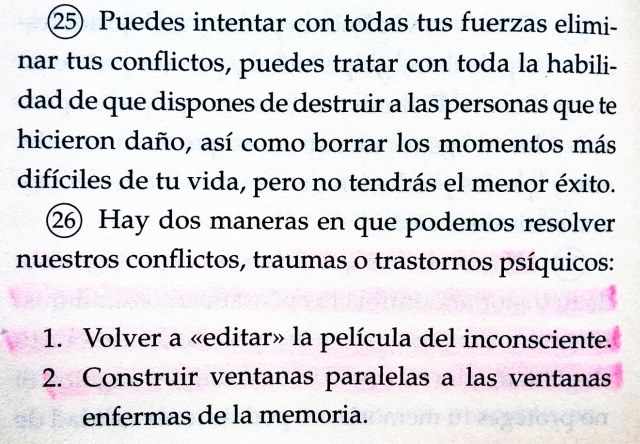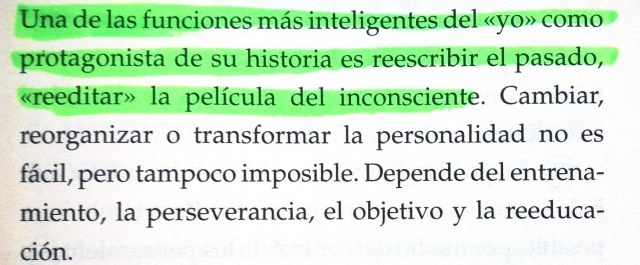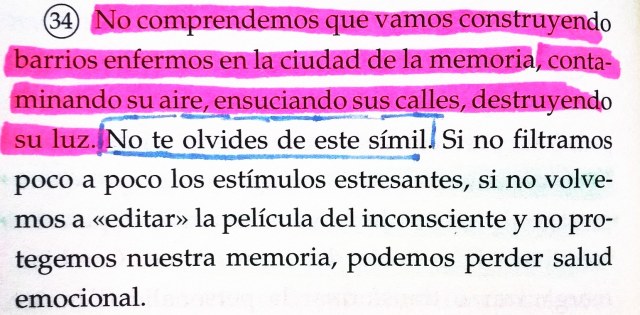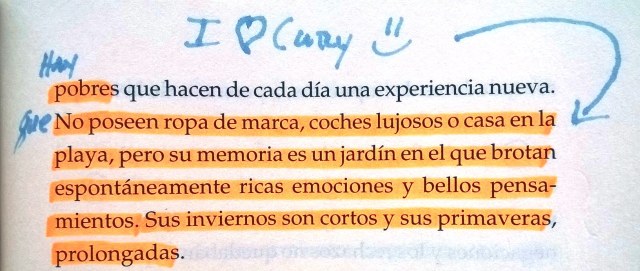Chapter 7
WORKING ON THE FUNCTION OF MEMORY: “RE-EDITING” THE MOVIE OF OUR SUBCONSCIOUS
7th law for quality of life
SEVENTH WEEK OF PROGRAM
6. In computers, saving something in the memory depends on the user. In human beings, the registry is involuntary and is done by the phenomenon of RAM (Automatic Registry of Memory).
9. The more we try to reject something (a person who bothered us, a loss, a social humiliation), the more deeply it is registered, the more it is read, and in this way becomes part of thousands of thoughts.
10. The best way to filter stressful stimulants no is through anger or hate, rejecting them or complaining about them, rather:
i. Understanding them
ii. Criticizing them
iii. Considering them “multi-focally”, in other words, from different angles.
iv. Using them as opportunities to grow.
v. Deciding to not be their slave.
You save millions of experiences yearly, but tend to recover those with the most emotional content, like those involving loss, happiness, praise, fears, frustrations.
22. Never forget you should be the protagonist of your own history. Control your thoughts, administer your emotion, doubt your incapacity, question your fragility, look at things from multiple angles. If you don’t protect your memory, you won’t be able to have quality of life.
25. You can try with all of your strength to eliminate your conflicts, you can try with all of your ability you possess to destroy those who have hurt you, as well as erasing the most difficult times of your life, but you won’t have the least bit of success.
26. There are two ways in which we can resolve our conflicts, traumas and psychological problems:
i. “Re-edit” the movie of your unconscious.
ii. Construct parallel windows to the unhealthy windows of memory.
When we utilize the technique of DCD (Doubt, Criticize, Determine), when we find ourselves in a critical moment of tension, we can produce new experiences which are recorded where the unhealthy experiences were previously stored.
One of the most important functions of our “I” as protagonist of your own history is to rewrite the past, “re-edit” the movie of our unconscious. Changing, reorganizing and transforming personality isn’t easy, but neither is it impossible. It depends on training, perseverance, the objective and re-education.
34. We don’t understand that we construct sick neighborhoods in the city of memory, contaminating its air, dirtying its streets, destroying its light. Don’t forget about this simile. If we don’t filter little by little stressful stimuli, if we don’t “re-edit” the movie of the unconscious and protect our memory, we can lose our emotional health.
There are people who are poor who make a new experience of each day. They don’t have designer clothes, luxurious cars or a house on the beach, but their memory is a garden which spontaneously sprouts forth a wealth of emotions and beautiful thoughts. Their winters are short and their springs, long-lasting.


